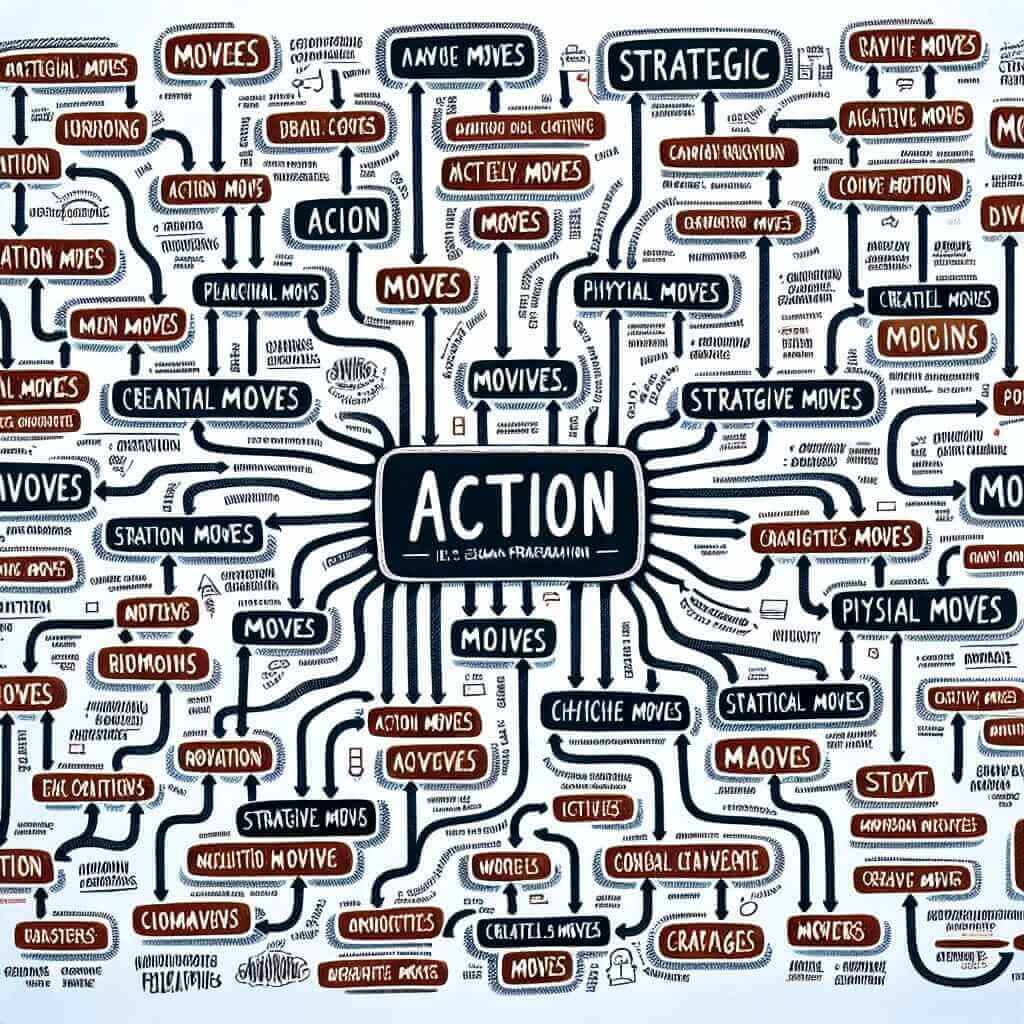As an IELTS instructor with over 20 years of experience, I understand the importance of vocabulary in achieving a high score on the exam. Students often ask me for ways to diversify their language, particularly when describing actions or strategies. This guide will explore a range of words to express different “moves” and “plays,” enhancing your ability to articulate yourself effectively in the IELTS Speaking and Writing sections.
Understanding the Importance of Varied Vocabulary
Using precise and sophisticated vocabulary demonstrates your command of the English language, a key factor in achieving a high IELTS band score. Instead of relying on common verbs like “do” or “make,” employing more specific words for different “moves” and “plays” can significantly enhance your lexical resource score.
Action Words for Different Contexts
Let’s examine some alternatives to generic verbs, categorized by the type of “move” or “play” they describe:
1. Strategic Moves:
- Implement: To put a plan or strategy into action.
- Example: “The government plans to implement new policies to address climate change.”
- Execute: To carry out or put into effect a plan, order, or course of action.
- Example: “The team executed the play flawlessly, scoring the winning touchdown.”
- Maneuver: To move skillfully or strategically.
- Example: “The chess player maneuvered her queen into a powerful position.”
- Outwit: To defeat or gain an advantage over someone using intelligence and cunning.
- Example: “The detective managed to outwit the suspect and secure a confession.”
2. Creative Moves:
- Devise: To invent or plan something new or original.
- Example: “The engineer devised a new system for purifying water.”
- Improvise: To create or perform something spontaneously, without preparation.
- Example: “The jazz musician improvised a stunning solo.”
- Conjure: To create something seemingly out of nothing, as if by magic.
- Example: “The magician conjured a bouquet of flowers from thin air.”
- Craft: To make or create something skillfully.
- Example: “The artisan crafted a beautiful vase from blown glass.”
3. Physical Moves:
- Execute: To perform a movement or action skillfully.
- Example: “The gymnast executed a perfect somersault.”
- Lunge: To make a sudden forward movement.
- Example: “The fencer lunged at his opponent.”
- Pivot: To turn or rotate around a fixed point.
- Example: “The basketball player pivoted to face the basket.”
- Sidle: To move sideways, especially in a discreet or cautious manner.
- Example: “The shy student sidled into the classroom, hoping not to be noticed.”
 IELTS Vocabulary: Action Words
IELTS Vocabulary: Action Words
Applying These Words in IELTS
These words can significantly enhance your responses in both the Speaking and Writing sections.
Speaking: Imagine you are asked to describe a time you outwitted someone. Instead of saying, “I tricked my brother,” you could say, “I managed to outwit my brother by…” This demonstrates a more advanced level of vocabulary.
Writing Task 1: When describing a process diagram, instead of repeatedly using “do” or “make,” you could use words like “implement,” “execute,” or “devise,” depending on the specific action being portrayed.
Writing Task 2: When presenting your arguments, using verbs like “maneuver” or “craft” can add sophistication and depth to your writing style.
Tips for Success:
- Context is Key: Ensure the word you choose fits the context of your sentence. Using a thesaurus can be helpful, but always double-check the meaning to ensure it aligns with what you want to convey.
- Practice Makes Perfect: Regularly incorporate these words into your speaking and writing practice. Create your own sentences and practice using them in different contexts.
- Read Widely: Exposure to a variety of texts will help you encounter and internalize a wider range of vocabulary.
By expanding your vocabulary and mastering the nuances of words that describe different “moves” and “plays,” you’ll be well-equipped to excel in the IELTS exam and confidently communicate your ideas with precision and clarity.


